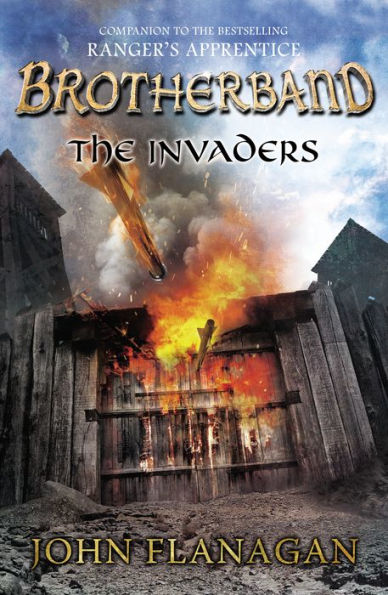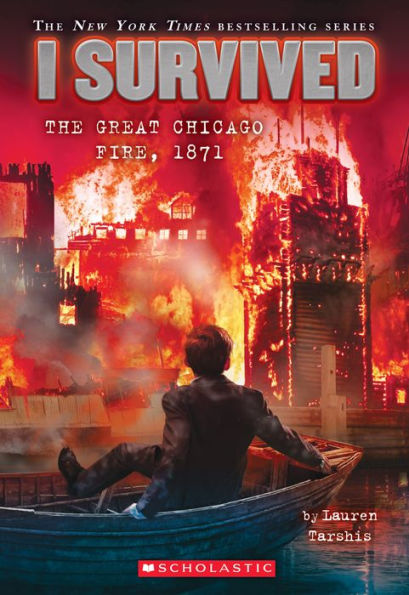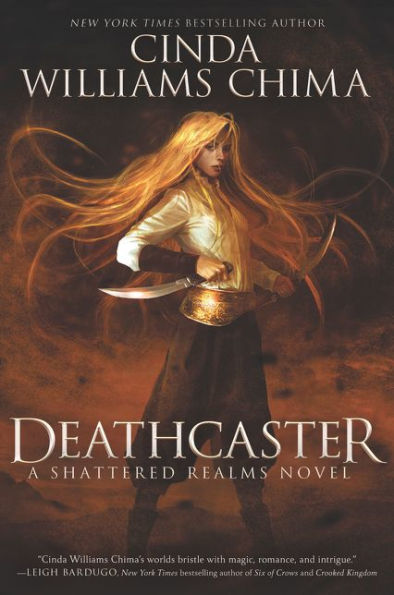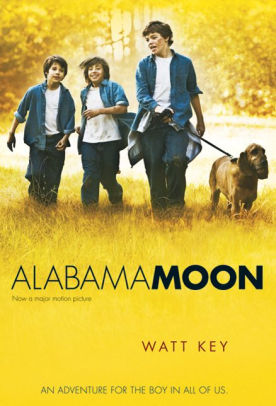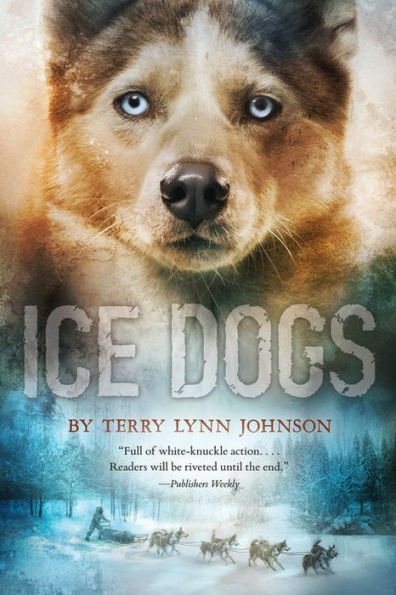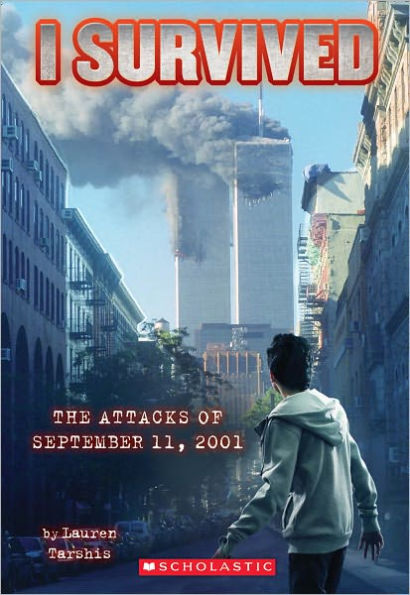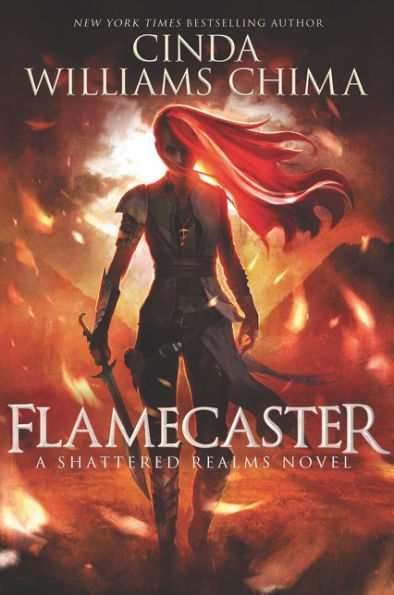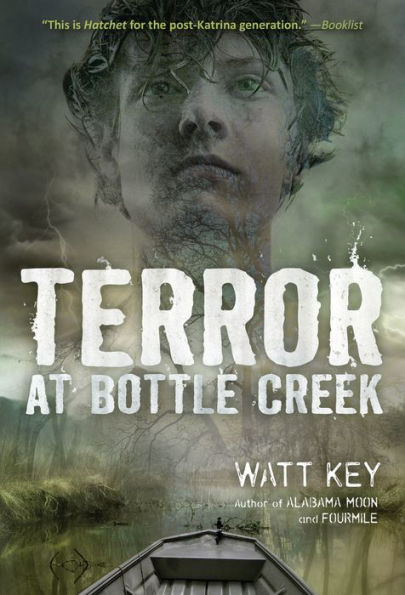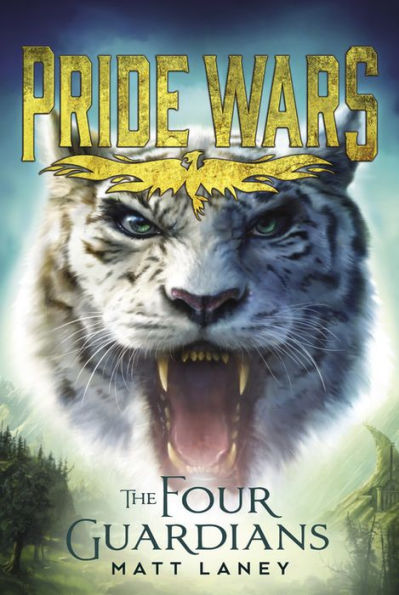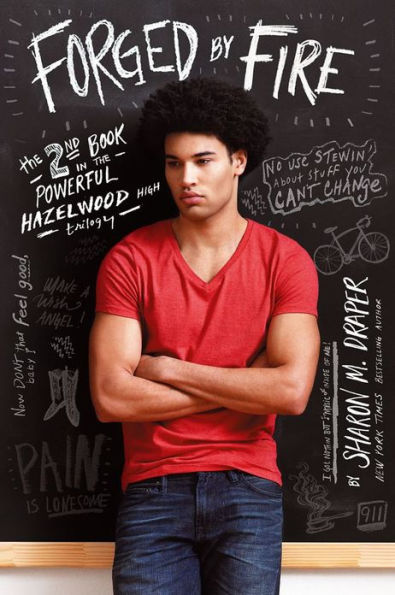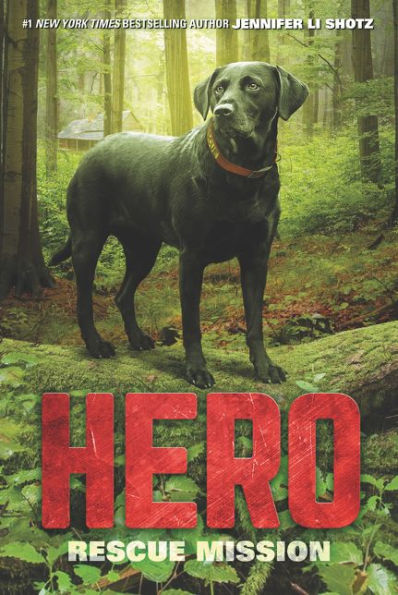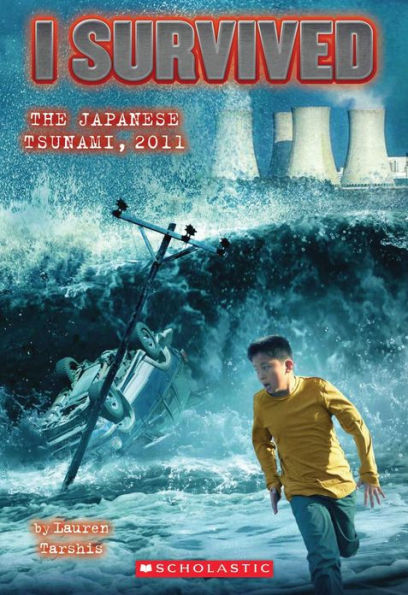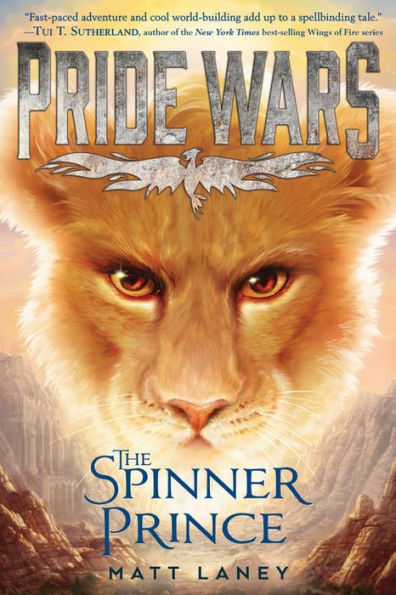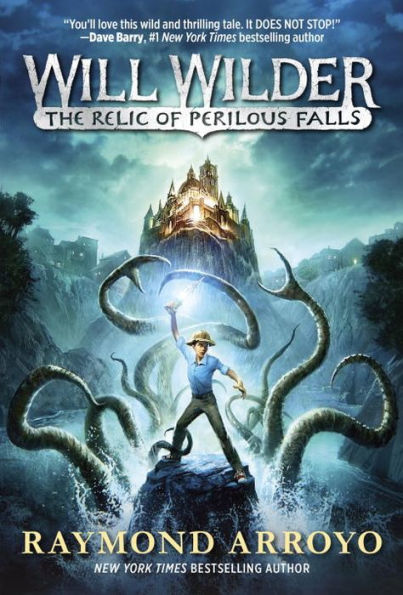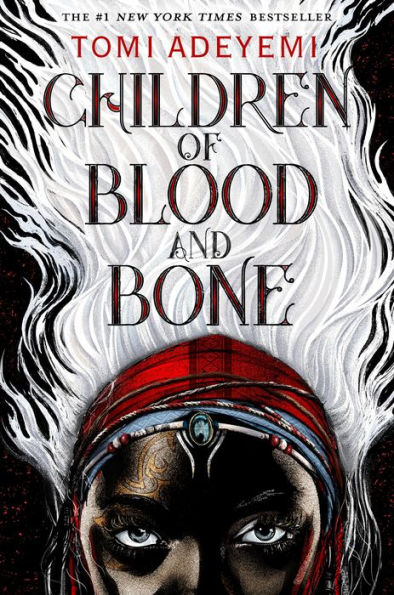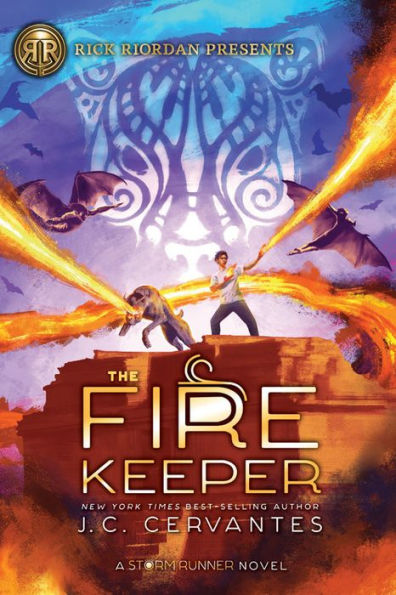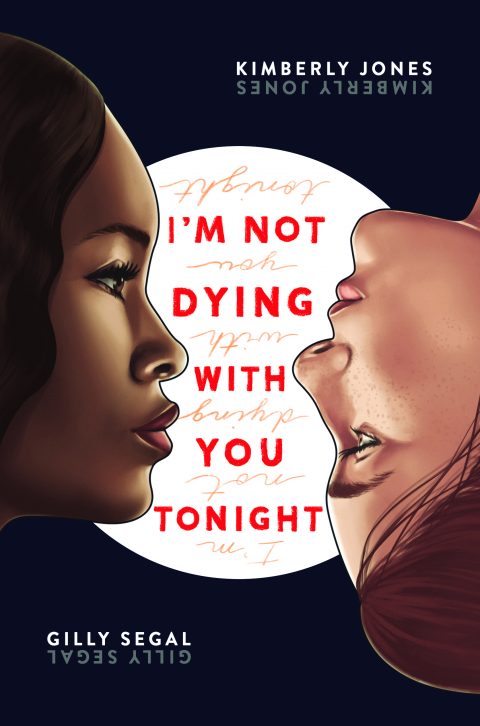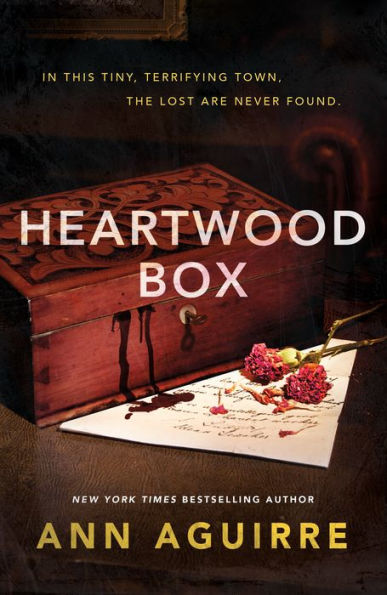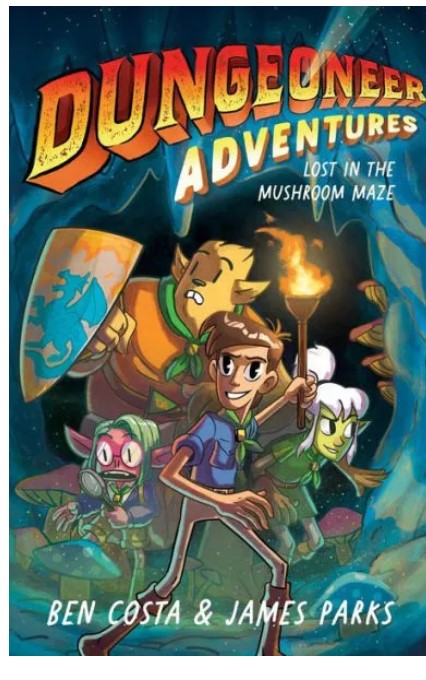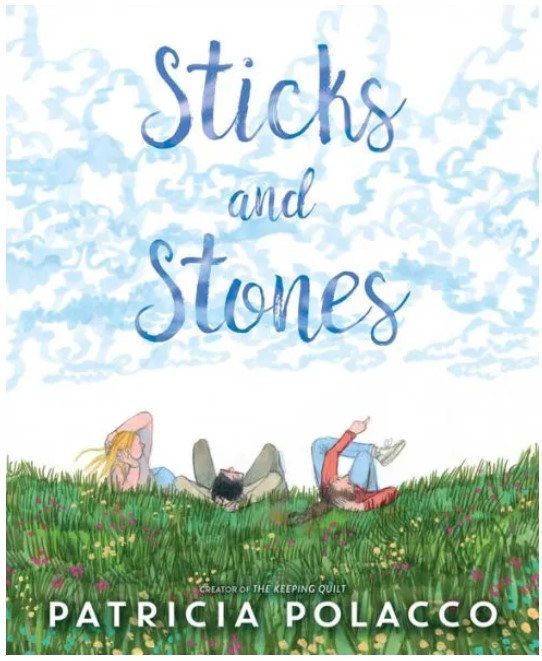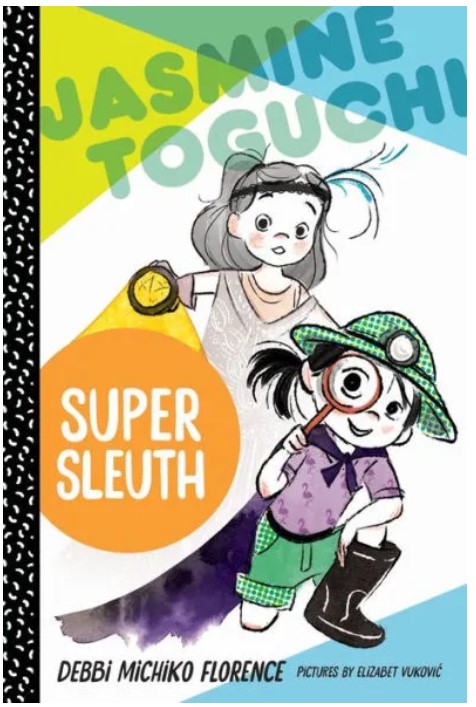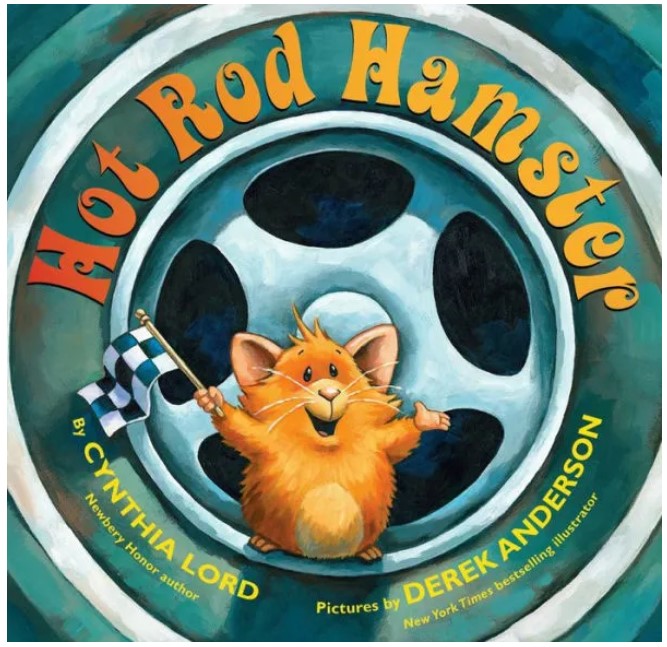As champions of the Brotherband competition, Hal and the rest of the Herons were given a simple assignment: safeguard the Skandians’ most sacred artifact, the Andomal. When the Andomal is stolen, the Herons must track down the thief to recover the precious relic. But that means traveling stormy seas, surviving a bitter winter, and battling a group of deadly bandits willing to protect their prize at all cost. If it comes down to a fight, Brotherband training might not be enough to ensure the recovery of the Andomal—or the safety of the Herons.
Even though the Herons have left Skandia, their training continues as they wait for the winter winds to cease. The beginning of The Invaders focuses on Thorn’s training of the boys, which allows Thorn’s character to shift from a broken-down drunk to a respected warrior. The story often shifts focus from the Herons, to the pirate Zavac and back to Skandia. While the three story threads are easy to follow, the large cast of characters do not allow for sufficient character development. Hal and Thorn are well-developed, but the other characters fade into the background.
Despite the lack of character development, one theme runs true: “We all have different levels of ability. What we must do is make the most of what we’ve got.” Each character has a different ability and even Ingvar, who has poor vision, is a valuable member of the crew. The Invaders adds Lydia to the crew. Lydia is not a helpless girl who needs a man to save her. Instead, her skills are essential in helping save lives during the battle against the pirates.
While the plot is somewhat predictable, the interactions between the Herons’ Brotherband, Swengal’s Skandian crew, and the town people add interest. Unfortunately, at 400+ pages, The Invaders does little to advance the plot. The story ends with the pirate Zavac’s escape and the Herons alone in their search to find Zavac and take back the Andomal. The sluggish beginning, the difficult vocabulary, and the descriptive sailing scenes make The Invaders best for strong readers.
Unlike the Ranger’s Apprentice Series, the main characters are not fighting to help their country. Instead, Hal is fighting to restore his Brotherbands’ reputation. Another main difference between the two series is that Hal’s ingenuity is constantly praised, and he does not learn and grow. Readers who fell in love with Will in the ranger’s apprentice, will miss the three main characters—Will, Horace, and Halt. Even though The Invaders is not as captivating as the Ranger’s Apprentice Series, readers ready for an adventure on the high seas will enjoy the story.
Sexual Content
- None
Violence
- When Jesper questions Thorn’s ability to train the boys, Thorn “moved with blinding speed. . . The old sea wolf’s left hand closed on Jesper’s collar in an iron grip and hoisted the boy off his feet, holding him suspended, his feet dangling clear of the ground. Then he gathered himself and hurled Jesper away like a sack of potatoes.”
- While training the boys, Thorn uses a hickory baton to give the boys “a none-too-gentle rap on the behind” to get them moving. Once, Thorn “put a little extra venom into a whack.”
- Thorn teaches the boys how to fight in battle. During an exercise, “Stig launched one last, massive blow at Thorn. . . Thorn caught it on the slanting face of his shield and deflected it.” Stig loses his balance, and “Thorn jabbed the baton painfully into his ribs like a snake striking.”
- Pirates attack a ship. When a sailor tried to surrender, “a pirate’s spear was already thrusting forward. It took him in the middle of the body and drove him back. He screamed and fell to the deck, the spear still transfixing him as the pirate struggled to free it.” Even the sailors that surrendered were killed. “One died in silence. The other gave a brief cry of pain and despair, then fell to a bloodstained deck.”
- The pirate captain, Zavac, questions a sailor to find where the ship’s treasures are hidden. Zavac “slashed the thin blade of the dagger across the Gallican’s face, laying open a long cut. . . Now the pain registered with him, a burning sensation across his face, accompanied by the rush of blood dripping down onto his clothes.” When the sailor stays quiet, Zavac tells his men, “Torture him. . . . On second thought, when he’s ready to talk, keep torturing him for another five minutes. Then call me.” After being tortured, the sailor is “barely recognizable. . . Two of his fingers on his right hand were missing, as was his left ear.” The sailor was eventually killed. The ship attack is described over eight pages.
- Zavac and the pirates attack a small town, killing many people. The watch commander and his men try to defend the town. Zavac joins the fight and “he pivoted on his right foot and thrust viciously with the long curved blade in his hand. He felt it strike a momentary resistance, pause, then penetrate. Only now, he looked, and saw his sword deep in the belly of one of the garrisons. . . Zavac’s thrust had gone just below the highly polished breastplate that the man wore. The officer’s eyes were wide-open with shock.” The man dies. The pirate’s attack is described over several chapters.
- A group of pirates chase Lydia. Trying to escape, she gets into a skiff. A pirate “grabbed hold of the stern” and Lydia “unshipped one of the oars and jabbed it at him, aiming at the hand that clutched the stern. He yelled in pain, releasing the boat.” Another pirate comes after her and Lydia “took quick aim at the man who had nearly caught her, then cast. His comrades were startled as he screamed and threw his arms up, then fell backwards against the wave. . .” The pirate dies.
- Stig asks Barat, a company commander, to allow some of his men to help save Hal. Barat tells Stig no and Stig “hit Barat with every ounce of his strength. . . It was a savage right that connected flush on the side of his jaw, lifted him off his feet, then dropped him to the sand like a sack of potatoes. . . Barat was out like a light.”
- The Skandians team up with the town people to defeat the pirates. Hal and his crew hit the balustrade with huge arrows. “A few seconds later, a section of the pine balustrade around the tower exploded in a hail of splinters as the heavy projectiles smashed into it, then through it, cartwheeling among the defenders and knocking men over.” Some pirates are injured, but the injuries are not described.
- After Hal and his crew set the watch tower on fire, the pirates flee. However, the Skandians are waiting for them. The Skandians “smashed into the disorganized Magyarans, axes rising and falling in a deadly rhythm. The pirates, stunned and demoralized by the sudden onset of the watchtower fire, eyes streaming from the smoke, had no chance against the charging Skandians.”
- Swengal and one of the pirates have one to one combat. “The Magyaran panicked as he tried in vain to withdraw his trapped spear. As a result, he never saw the roadhouse stroke from the massive ax that ended the fight for good.”
- The story ends with a multi-chapter battle where the Skandians help free the town from pirates. When one of the invaders was shooting arrows at the Heron, Lydia threw a dart at him. The man “reappeared, arrow nocked, bow half drawn—and stepped straight into the plummeting dart she had just thrown. He threw up his hands, the bow went spinning away, and he reeled, then toppled over the railing, hitting the support frame several times as he fell.”
- One of the Heron’s crew, Ingvar, was hit by an arrow. “. . . Ingvar [was] writhing on the deck, clutching at the arrow that was protruding from his left side, close to the hip.”
- The Heron uses an oversized crossbow to send projectiles into a platform. The projectiles “wreaked havoc on the platform, smashing and splintering the railing and cutting down five of his [the pirate leader’s] men.”
- One man is hit with a dart and then “toppled off the catwalk and thudded to the street below.”
- Another pirate tried to flee, but Thorn “slammed the small metal shield into his unprotected midriff and he gasped and doubled over. A rib-cracking jab from the club finished him, sending him sprawling.”
- During the battle, many pirates die. One dies when Hal “jabbed quickly forward and saw the shock on the man’s face as the sword penetrated his defense and slid between his ribs.”
- When some of the pirates attempt to flee, the towns’ people attack them. “After a few brief violent moments, the townspeople moved on, leaving the broken, battered bodies of the pirates sprawled on the cobbles.”
Drugs and Alcohol
- A Skandian in the common room had an ale cup in his hand.
- Sometimes Thorn’s past drunken behavior is discussed and Thorn is called a, “Broken-down old drunk.”
- A ship that the pirates attack is carrying “a few barrels of wine and ale.”
- After the town is liberated, they throw a celebration where ale is served.
Language
- One of the boys says, “Don’t be an ass, Stefan.”
- Lydia calls someone a “pompous, overbearing prat of a man.”
- Thorn calls someone a “preening idiot.”
- Gorlog is a Skandian god. Five times, Gorlog’s name is used in creative exclamations such as, “Oh for Gorlog’s sake.” Another time, Thorn says, “Gorlog’s bleached and broken bones you’re a sorry lot.”
- Someone says, “Oh Bungall’s braided beard.” Bungall was a minor deity, generally referred to as the god of acting in an embarrassing manner.
- One of Hal’s crew says, “Perlins and Gertz,” who are the Skandian demigods of snow and ice.
Supernatural
- None
Spiritual Content
- Occasional the Skandian gods’ names are used as exclamations.
- Thorn thinks, “May the Great Blue Whale fly up to the sun.” The reference is not explained.
- There is a brief reference to Tharon, the god of thunder.
- When Hal and his crew are found, Swengal says, “Thank the gods you’re all safe.”
- After a man knocks out Barat, he tells one of Barat’s men to tell the others “Barat stayed behind to pray to Torink for a great victory.” Torink was their god of battles.
